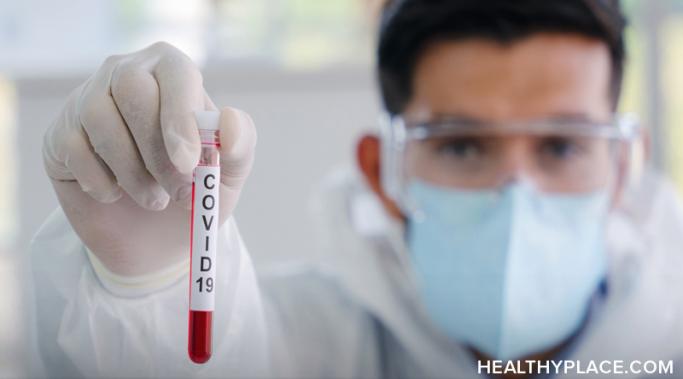Blogs
I had to find out what taking a COVID-19 test was like the hard way. I had to learn about the extreme anxiety that is taking a COVID-19 test the hard way. Yes, I had to take a COVID-19 test, and while I didn't want to do it, and it made for a horrifically anxious couple of days, I would do it again anyway.
Why would you think like a scientist to reduce anxiety, and what does mindfulness have to do with it? I've noticed something over the past several weeks, and I want you to know how thinking like a scientist can greatly reduce the anxiety you feel.
t's no secret that depression zaps your motivation to do, well, anything, and can drastically lower your productivity. The constant carousel of intrusive thoughts and worries can have a paralyzing effect — making it impossible to focus on anything beyond the most basic of tasks and making you feel like a failure. Fortunately, there is something you can do to help alleviate those feelings, and it involves reassessing what you think it means to be productive (with or without depression).
With the holidays nearly here, I've been taking some time to reflect on what it will mean to find joy during a very different holiday season. For many people, this time of year brings a mix of happiness and overwhelmingness. And in 2020, both feelings will likely be heightened.
The holiday season is here, and for many, the dreaded holiday anxiety comes with it. The ostensibly festive and happy season can cause significant stress and anxiety. However, you can create a positive, meaningful holiday despite the very legitimate worries and challenges you may experience (especially this year--holidays 2020-style). The following five tips can help you have a peaceful, positive holiday season with less anxiety.
I’m Justin Hughes, and I’m thrilled to be joining "Building Self Esteem." This is a subject I have struggled with my entire life. In fact, I still struggle with it today. When HealthyPlace invited me to join this blog, I found the subject ironic, because, of my assorted mental health struggles, self-esteem is the one I have gotten over the least. I’ve made significant progress toward battling my negative self-talk, but I’ve hardly mastered it. Perhaps that’s precisely why I’m here.
Instead of apologizing all the time for the shortcomings you believe make you less worthy, try practicing forgiveness as a method to build your self-esteem. How will practicing forgiveness help your self-esteem grow?
I recently went on a social media break -- no doomscrolling, no aggravating my depression -- and it felt great. Social media is where I get most of my news, and given that the world seems to be falling apart these days, it was a relief to get away from doomscrolling.
As a working-class person with bipolar disorder, I have several limitations and face a lot of barriers to gainful employment. Jobs that require monotonous, repetitive tasks don't provide my brain with enough stimulation to keep me engaged, which can trigger both mania and depression. Part-time jobs with irregular shifts are also out of the running since inconsistent scheduling hurts my sleep-wake cycle (which any psychiatrist will tell you is essential for managing bipolar). And despite the protections afforded to people like me by the Americans with Disabilities Act, employment discrimination against folks with mental illness remains a serious problem. Yet, in spite of all the hurdles to meaningful, profitable work and financial freedom that I face, the truth is that I'm grateful for my limitations from bipolar.
Perfectionism, in my opinion, creates unhappiness and is frequently misunderstood. Many people think that a perfectionist is just someone who has color-coded planners or follows all the rules. They can't observe the self-criticism and constant disappointment lurking in a perfectionist's deepest thoughts. Perfectionists make the best task-doers, but often, they are the most unhappy.









